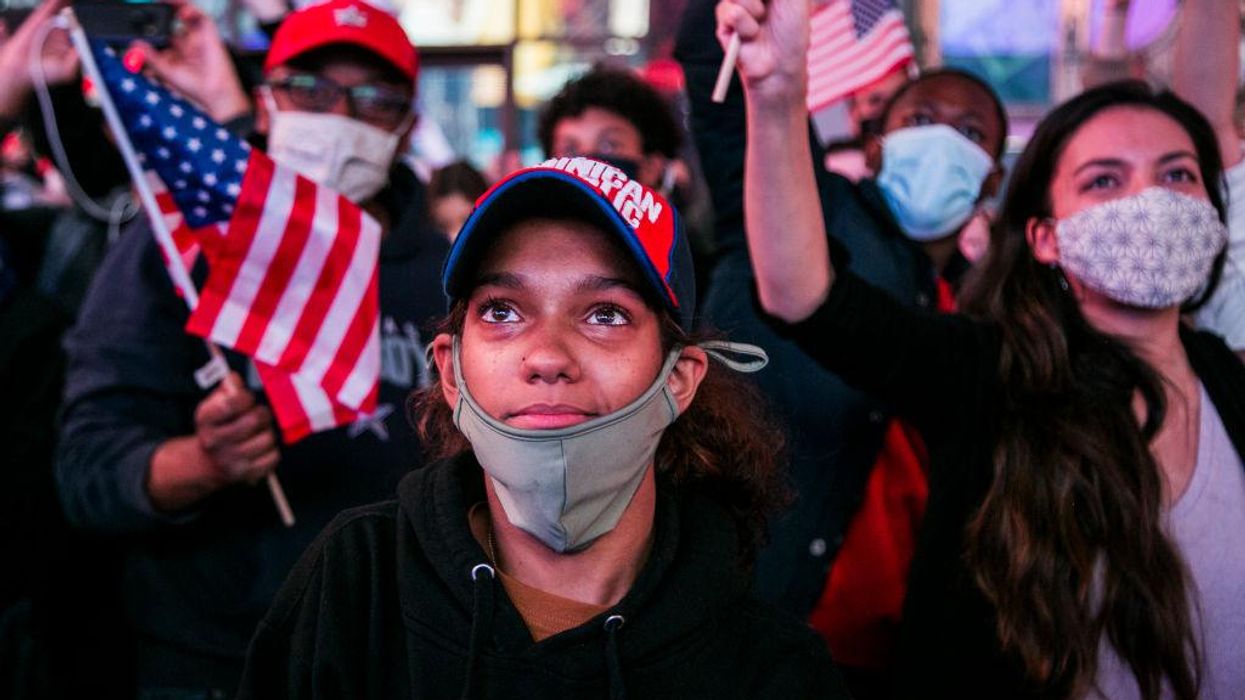Zaidane is the president & CEO of Millennial Action Project.
"Lazy. Entitled. Narcissistic."
Millennials have been called a lot of things, most of them untrue, but there's one term missing from this list: bridge-builders.
In a time when it seems like our partisan identities are hopelessly dividing us, my generation is rejecting the very notion that we can be neatly defined by one-dimensional labels. Sure, there's plenty that we disagree on. But young people, more so than our older counterparts, recognize the benefits of diverse backgrounds and perspectives, and the ways in which we benefit from connecting with people who are different from us. And that means that young people hold the key to fixing the political polarization gripping our nation.
Political polarization is the result of career politicians prioritizing short-term action at the cost of meaningful long-term progress. This disproportionately impacts younger generations by leaving long-term fiscal, climate, health, and educational issues unaddressed. For example, Congressional procrastination on immigration reform is at least partly to blame for the slowest U.S. population growth in nearly a century, a reality that has long-term economic implications on things like Social Security funds and tax revenue. Inaction on big issues today will negatively affect Millennials and the generations that follow us throughout our lifetimes.
Yet young people are optimistic about the future of our country, and our own ability to solve these urgent problems. Even better, we are turning that optimism into action. When asked "who will bring about a positive change in your lifetime," young people overwhelmingly answer "Me." Last year saw a 266% increase in Millennials running for Congress, a testament to our generation's empowerment to create the change we wish to see in the world.
The best part? The young leaders who win elected office are actually passing bipartisan legislation at higher rates than their older colleagues. Just as Millennials have allegedly "killed" everything from cereal to diamonds, we are now coming after toxic polarization.
The organization I run, Millennial Action Project (MAP), exists to support this wave of youth public service and scale their positive disruption in our political culture. More than 1,600 young leaders across the country have joined our network, primarily through something called a Future Caucus. This group of bipartisan elected officials works together in their legislature to write, introduce, and pass legislation. Even more importantly, the Future Caucus creates a permission structure for young lawmakers to build relationships across the aisle. By giving policymakers a generational identity to connect to, rather than a partisan identity, we create a new starting point for conversations.
That unique space allows legislators to harness the empathy, open-mindedness, and creativity necessary to tackle big problems. It's a simple idea that is having a powerful impact in the halls of Congress and state legislatures — like this Kansas Future Caucus bill to expand access to homeownership, or this Congressional Future Caucus legislation on gun violence prevention. When legislators truly listen to one another, they work more collaboratively and create more sustainable and long-lasting policy change. And if Members of Congress can do it, so can you. That's why moments like the upcoming National Week of Conversation are so important.
Last week, MAP, along with more than 300 other organizations, participated in America Talks and the National Week of Conversation. These national movements created a unique opportunity for thousands of Americans to come together to engage across lines of difference, in order to start the very real, very hard work of healing our divides.
In this spirit, MAP brought remarkable young legislators together across party lines to talk to one another — and more importantly, to listen to one another. We live streamed these conversations and engaged with community members to break down the barriers between elected officials and their constituents. Watch our first Instagram dialogue with two young members of Congress, Future Caucus co-chairs Reps. Blake Moore (R-UT) and Sara Jacobs (D-CA). We also convened three bipartisan young legislators at the state level who identify in the LGBTQIA community in observance of Pride Month.
Moments like these are critical for our democracy. And even beyond these days of action, we must prioritize bringing these types of conversations into the limelight. The more voters can see positive models of public service, the more they will believe that a democracy which thrives off of diversity is indeed possible — thus creating a virtuous cycle that builds a more effective and responsive civic ecosystem.
Ultimately, these conversations are an entry point, not an ending point. But we have to start somewhere, and the next generation of leaders is not waiting around. We are rolling up our sleeves and building the future we want to live in. The power of young people to transform our democracy is very real, and it's already happening all around us. You just need to listen.




















Trump & Hegseth gave Mark Kelly a huge 2028 gift